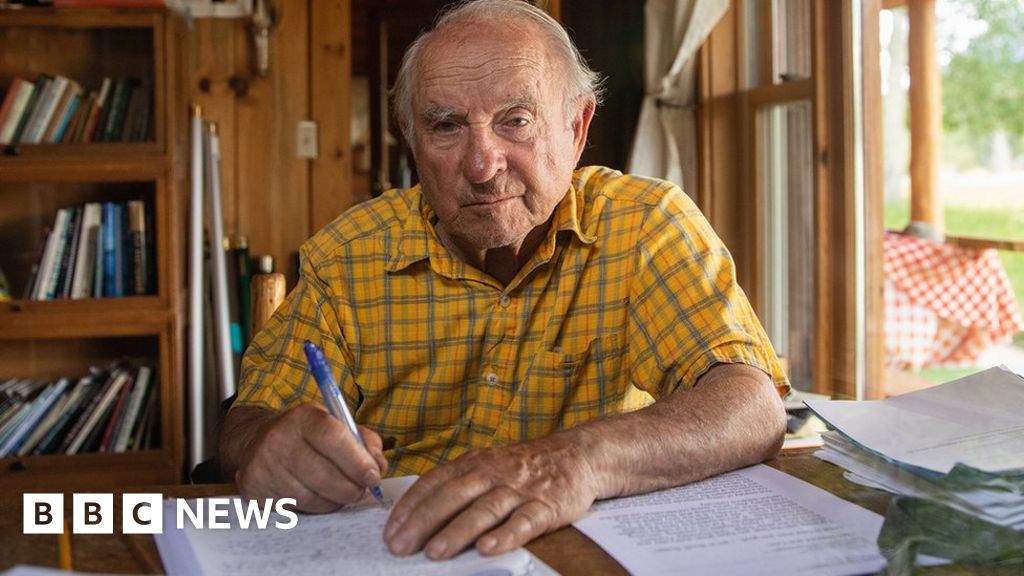Nope, these companies already pay a big chunk of tax on their profits. Truss wants to solve the energy crisis long term by encouraging them to invest, you don't do that by confiscating their profits.
First of all, here is the Milton Friedman Choir explaining why corporations are 'amoral' and should devote themselves exclusively to making profits (which Friedman fails to notice is itself a moral decision, just as it is a moral decision to label corporations as 'amoral' in the first place):
Truss is most certainly a fully paid up subscriber to this philosophy.
Unfortunately, it can be quite easily subjected to a swift process of trituration.
Firstly, not all companies regard the maximisation of profit as their main priority. For example, so-called 'firms of endearment' (examples include IKEA, Honda, Costco, Timberland) try to act with a measure of integrity in their corporate activity. They have outperformed the S&P 500 (a stock market index tracking the stock performance of 500 large companies listed on exchanges in the United States) by 14 times over the period of 15 years up to 2018.
Over the same period 'Good To Great' Companies (examples include Walgreens, Wells Fargo, Kimberley Clark, Abbott Laboratories) did so by 6 times. Within such companies, the management are actively encouraged to exhibit the virtues of self-discipline, courage and personal humility, and to give ethical consideration to stakeholders (i.e. anyone affected by the activity of their company).
In doing so, it may be worth noting that one reason for their success is that they attract a better calibre of employee, namely, those who are talented but not necessarily only in it for the money (the philosopher Peter Singer's book
The Most Good You Can Do describes many individuals embedded in senior positions in the corporate world, high-flyers who are altruistically rather than selfishly motivated).
Over in the UK, Julian Richer is an example of a successful business owner who is keenly sensitive to stakeholder concerns.
Some 522 staff will get an average of £8,000 after Julian Richer hands over a 60% stake in the retailer.
www.bbc.co.uk
Yvon Chouinard is another. This link is one day old:
Yvon Chouinard will give all of the fashion company's profits to a charity fighting climate change.
www.bbc.co.uk
Secondly, the philosopher Noam Chomsky has been critical of the highly unethical behaviour of large transnational corporations (TNC’s) who put profits over and above any sense of responsibility to their own employees, their consumers, or the environment. Chomsky maintains that corporations are obliged to act in ways that we would regard as pathological (i.e. dangerous and psychopathic) if that behaviour was exhibited by a human being. Chomsky’s comments are based on the research of psychologist Robert Hare. According to Hare, some large corporations (thankfully not all) are singularly self-interested, irresponsible, manipulative, lacking in empathy, have no conscience, experience no guilt about their actions, and will lie readily and relate to others in a superficial manner. For example, they set out to destroy their competitors and are not especially concerned about what happens to the general public or the environment as long as people are buying their product. So in the documentary movie
The Corporation (available on YouTube) Chomsky can be seen to disagree with Friedman’s view that corporations are not persons and should not be treated as if they are (with all the moral responsibilities that being a person entails). For Chomsky, multinational corporations can be dangerously amoral, and the public need protecting from them in the same way that they might need protecting from a criminal psychopath.
Energy companies are especially illustrative of the point Chomsky wishes to make. For example, Equatorial Guinea is a dictatorship with one of the worst human rights records in the world, consistently ranking among the "worst of the worst" in Freedom House's annual survey of political and civil rights. However, this has not deterred energy companies such as Chevron Texaco, Exxon Mobil, Hess, and Marathon Oil from doing business there, in implicit acceptance of its government's right to sell resources that truly belong to the citizenry as a whole. In doing so they are, of course, effectively lining the pockets of the leaders of a corrupt regime. Another example would be Shell and the Brent Spar debacle back in 1995. Shell is, of course, the company that Truss used to work for as a management accountant.
Thirdly, since the late 1990s, socially responsible investing (SRI) has gained increasing prominence, especially as a means to promote environmentally sustainable development, as many investors now consider the effects of global climate change to be a significant business and investment risk.
SRI has, in fact, become a booming market in both the US and Europe. These figures are not recent, but the European SRI market alone grew from €1 trillion in 2005 to €1.6 trillion in 2007. To cite one specific example, pension funds were placed under pressure to disinvest from the arms company BAE Systems, partly due to a campaign run by the Campaign Against Arms Trade (CAAT). Liverpool City Council, for instance, passed a successful resolution to disinvest from the company in 2007.
That there is an increasing market for ethical investment also suggests that Milton Friedman is wrong to assert that the primary responsibility of a company is to maximise profits for its shareholders, as it would seem that many potential investors take an active interest in how their money is invested, and share many of the same concerns as stakeholders. Those who invest ethically might therefore steer clear of businesses that share Friedman’s philosophy, thereby depriving those businesses of potential capital.
So in actual fact,
not paying a windfall tax may act as a deterrent to those who might otherwise contemplate investing in energy companies (as they are also the recipients of investment).
All of which hopefully demonstrates that Truss and Kwarteng's view of windfall taxes is both superannuated and ethically suspect. No wonder she doesn't want an ethics adviser.
I am also not entirely convinced of your other claim that their policies are necessarily reflective of Conservative beliefs, for the simple reason that not all Tories are the same. For example, before his expulsion from the party, I very much doubt that Rory Stewart would have aligned himself with them. It's difficult to tell (and I wouldn't know because I would never vote for them in the first place) but had he become the leader of the party, Stewart might possibly have favoured some kind of renewed vision of One Nation Conservatism. It is therefore just possible that there could be others like him who have remained within the fold.


